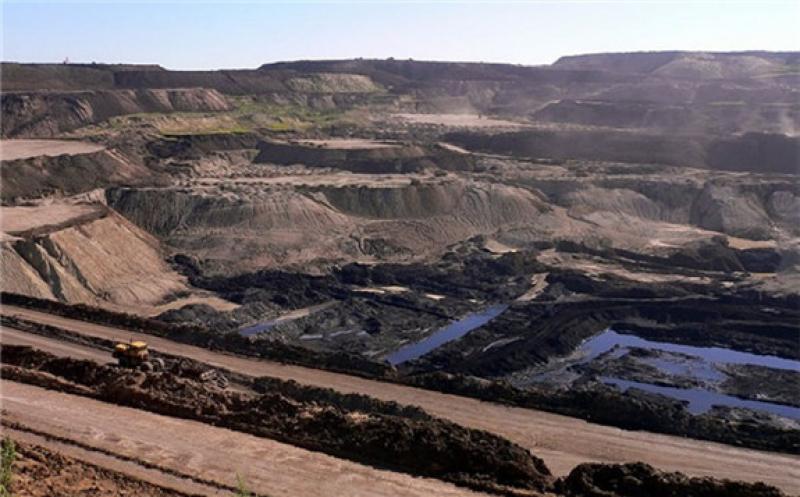The two nations are doubling down on a slower coal exit. At the COP26 summit, India, backed by China, had intervened at the last minute to change the language of the decision text, leading to a weaker declaration on a coal phase-out.

In the aftermath of the COP26 climate summit, where a last-minute intervention by India had led to a weaker declaration calling for coal to be phased down but not out, both India and China are signalling a slower exit from the world’s dirtiest fossil fuel.
“Both China and India, the biggest coal-consuming nations, have been ramping up output from mines in recent weeks to ease an autumn energy crisis that caused widespread power shortages and disrupted industrial activity,” Bloomberg Green reported. According to the news agency, the two countries mine 14 million tons of coal per day, and account for 95 per cent of the new coal-fired power plants brought online over the last decade — 444.2 gigawatts (GW) in China, and 113.7 GW in India.
The next three countries on the list — Indonesia, Vietnam, and South Korea — added 54 GW among them, according to data from BloombergNEF.
Bloomberg said that this explains the energy crunch explains why China and India put up a strong defence for coal’s future during the negotiations in Glasgow. “Coal not only remains crucial to their current energy needs but it looks set to have a role for decades to come. That is even as the two Asian giants install huge volumes of renewables and chase targets to zero out greenhouse gas emissions,” said Bloomberg.
Chinese Foreign Ministry spokesperson Zhao Lijian explained Beijing’s stance at a media briefing on Monday. “In many developing countries, not everyone has access to electricity. Energy supply is not adequate,” he said. “Before asking all countries to stop using coal, consideration should be given to the energy shortfall in these countries.”
Zhao said that China attaches “high importance” to the shift off fossil fuels and has committed to peak coal consumption in 2025. It has also cut off funding for overseas coal projects, reported Bloomberg.
The pledge to end international coal financing would cut China’s carbon pollution by the equivalent of Canada’s total emissions, the news agency said.
Zhao said that the effort to “reduce the proportion of coal consumption is an incremental process”, and that will call for faster action from the world’s richest nations, as well as financial support and technology transfer to help developing countries make the transition.
“When you tell the poor not to use charcoal in order to save trees, and not to use coal in order to save the planet, and they can’t afford cooking gas, you need to provide an alternative,” said Shehu Sani, a Nigerian senator
In the days leading up to COP 26, analysts were pointing to the global energy supply crunch as good reason to speed up the shift off fossil fuels, rather than slowing it down. Developing countries, however, are saying that the transition is not being adequately funded.
The last-minute change in the COP decision was interpreted by some as a new lease on life for coal. News agency Reuters speculated that “how humanity confronts climate change may come down to the intentions behind the two words [that were edited in the final text]”.
Other observers said that the difference in the nuances of United Nations legal jargon would not change the message to investors and other decision-makers — that the Glasgow climate pact is an indicator that coal is being shown its way out and other fossil fuels will soon be phased out too.
According to Reuters, coal stocks in Asia declined on Monday despite the “solid floor” provided by the energy supply crunch.
The main takeaway for companies and investors is that it is time to ramp up real plans to reach net-zero emissions, Bloomberg and Reuters reported. US climate envoy John Kerry said that COP 26 had ushered in a “new era of accountability”, after participants arrived at “a clear pathway with rules, with transparency requirements”.
But all of that will depend on net-zero plans that will help countries get past the “weasel words” in the Glasgow Pact that allow for future coal plants.
“We have sadly seen the hand of fossil fuel interests interfering with that text to water it down with weasel words,” Destination Zero Executive Director Catherine Abreu said in Glasgow. “This language ‘unabated coal,’ ‘inefficient fossil fuel subsidies’ — we’ve seen it before. We’ve seen it in the G20 for 12 years — ‘inefficient fossil fuel subsidies’. It means nothing.”
Next year’s UN conference, COP 27, will be held in Sharm El-Sheikh, Egypt, while COP 28 in 2023 will bring delegates to Dubai. Egypt is expected to face skepticism as Africa’s biggest oil producer, and Human Rights Watch is already slamming the country as a “glaringly poor choice” to host the COP in light of its “appalling” human rights record.
“Countries participating in COP 27 should press Egypt to release the thousands of people jailed solely for exercising their right to free speech and peaceful assembly,” said the organisation’s Middle East director, Joe Stork.